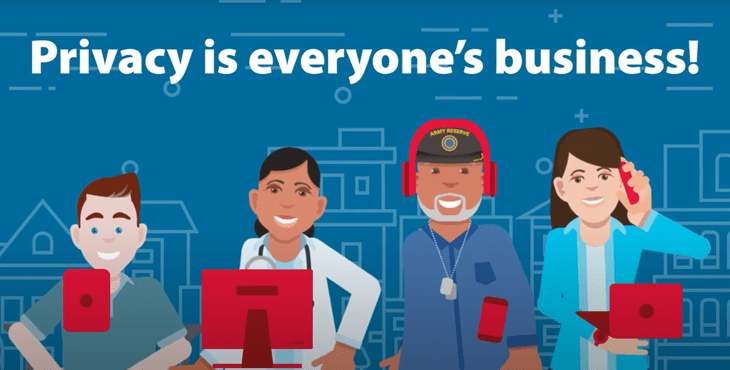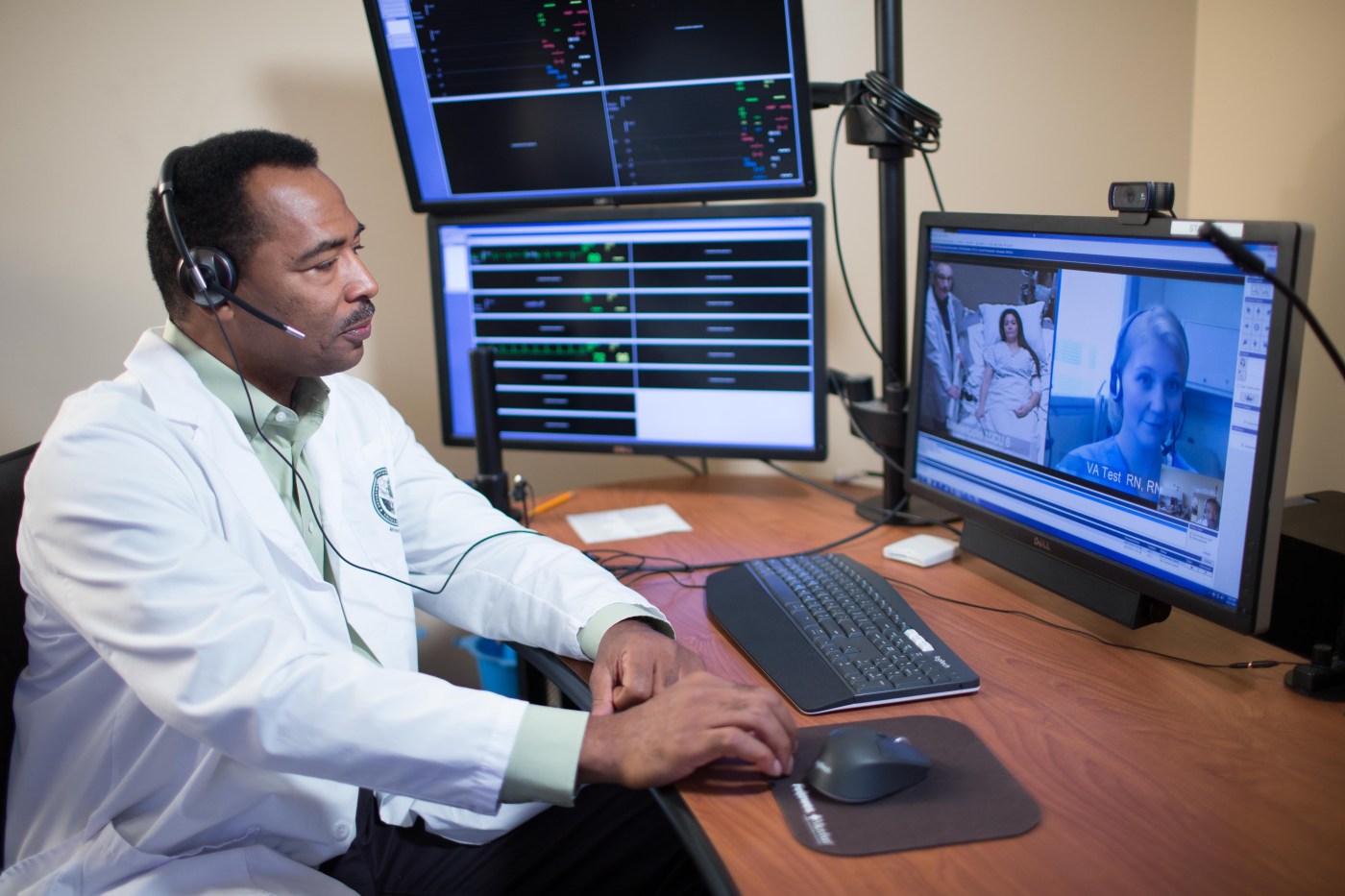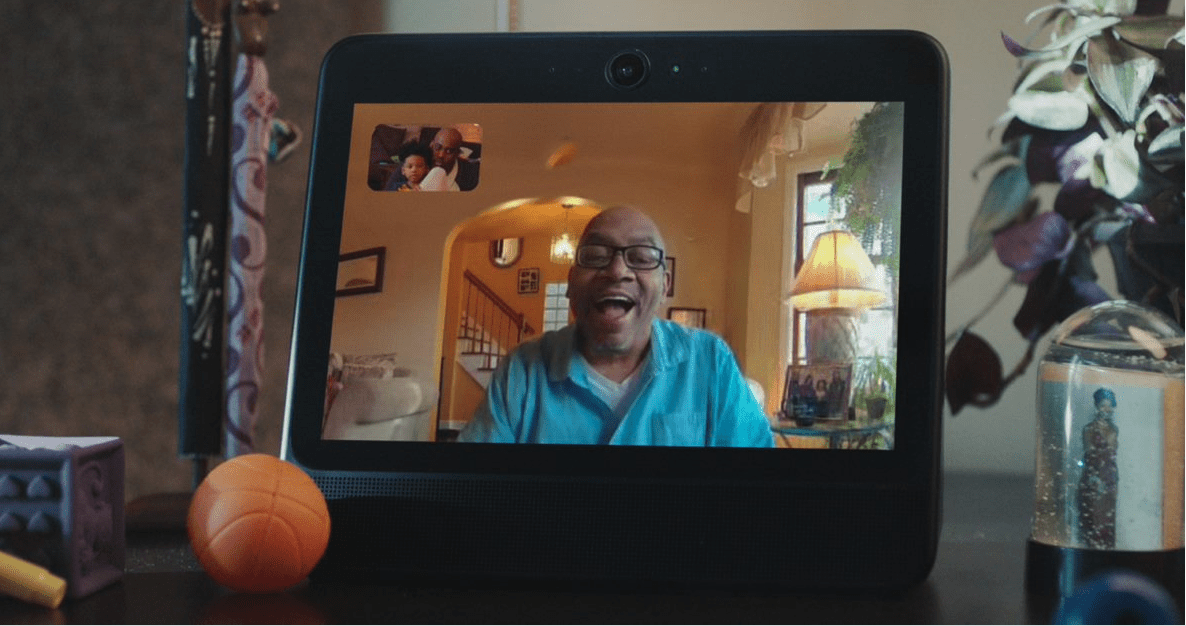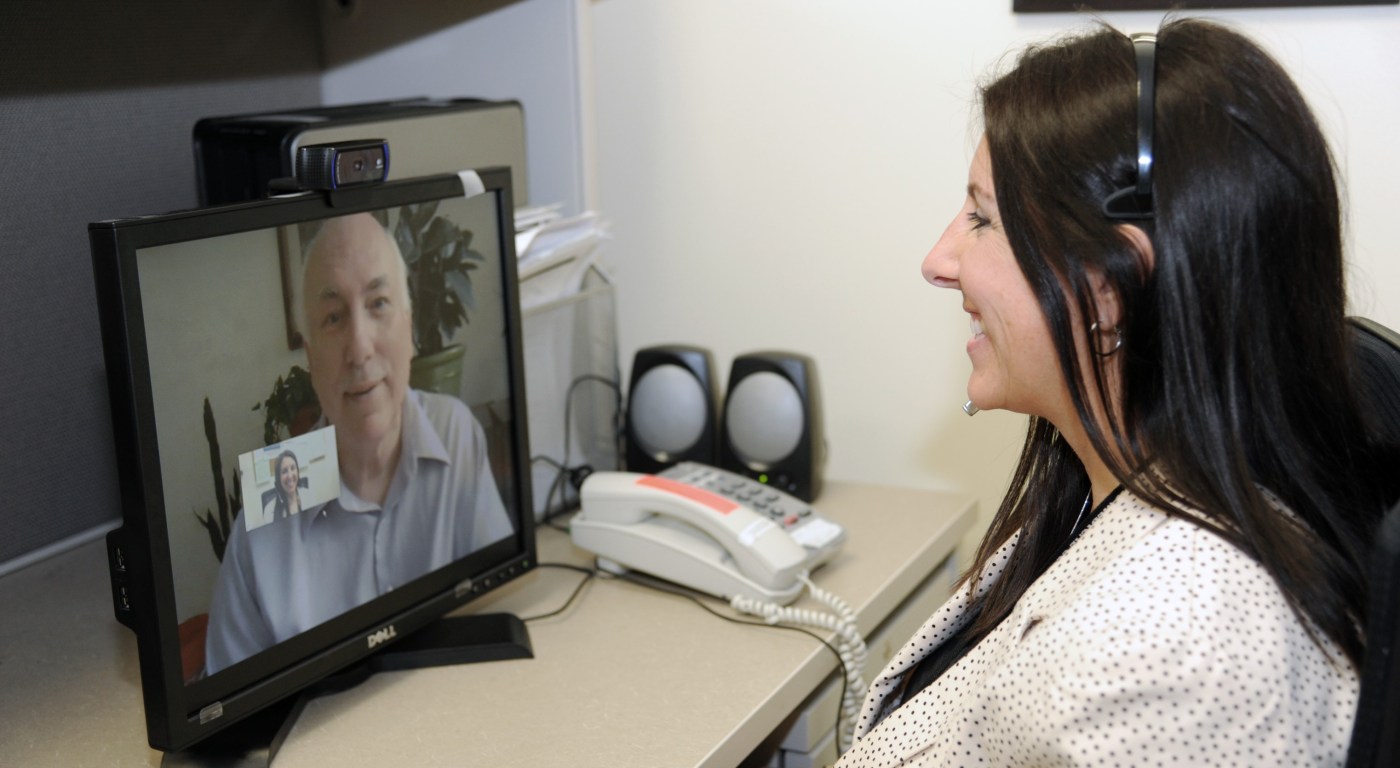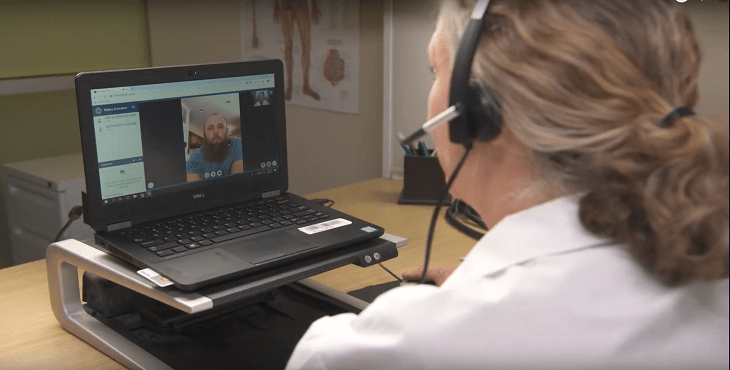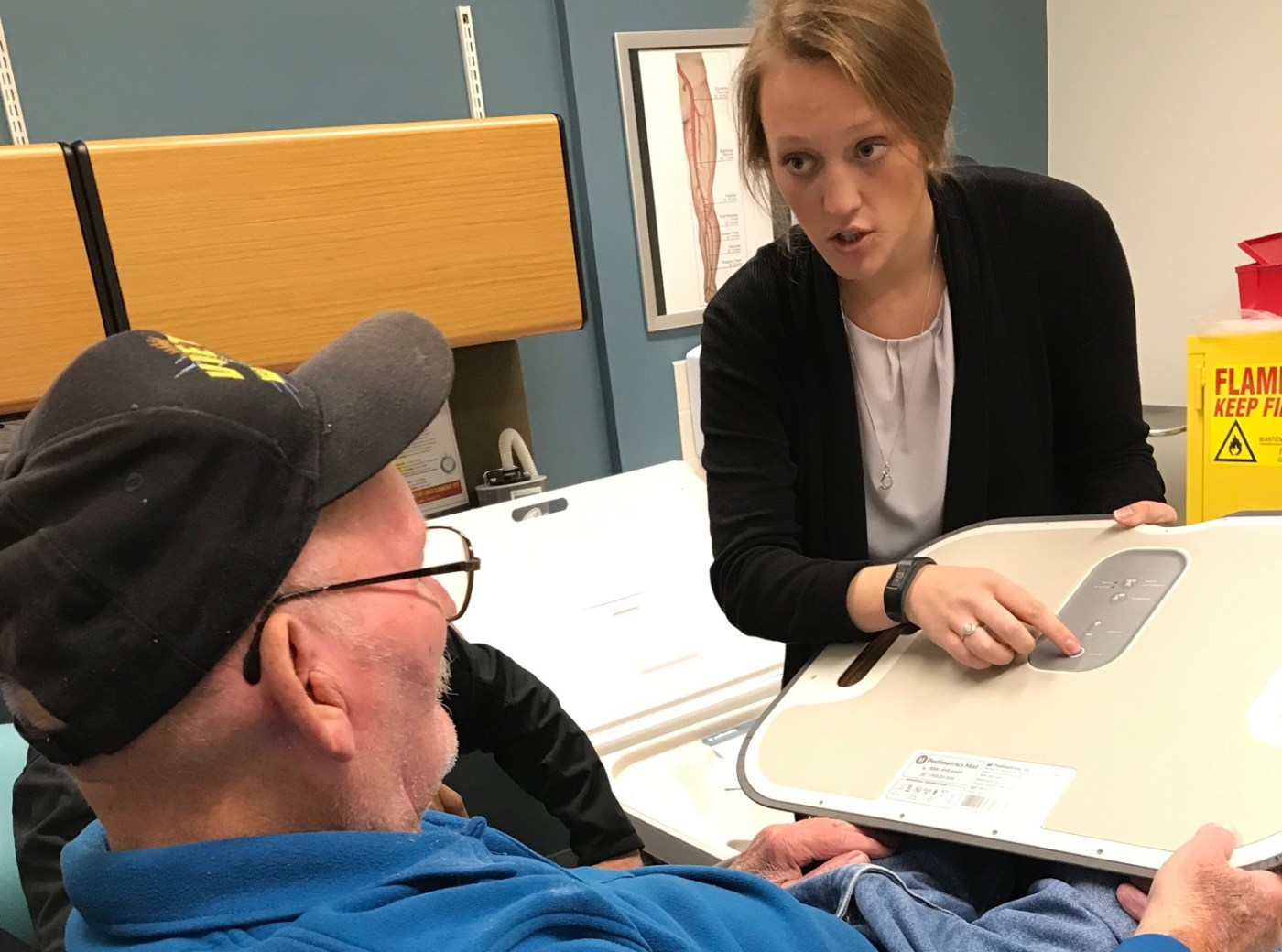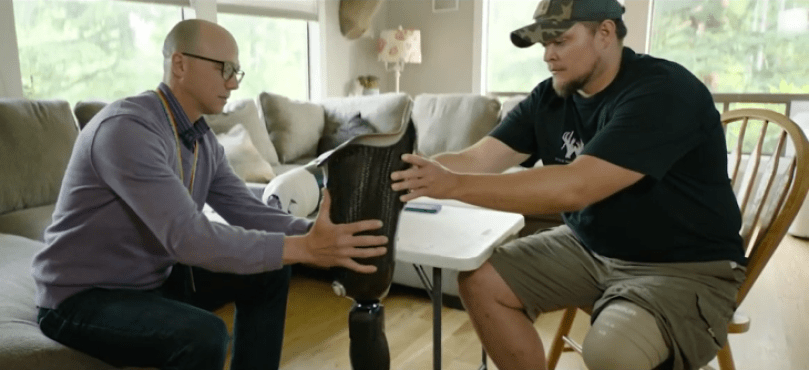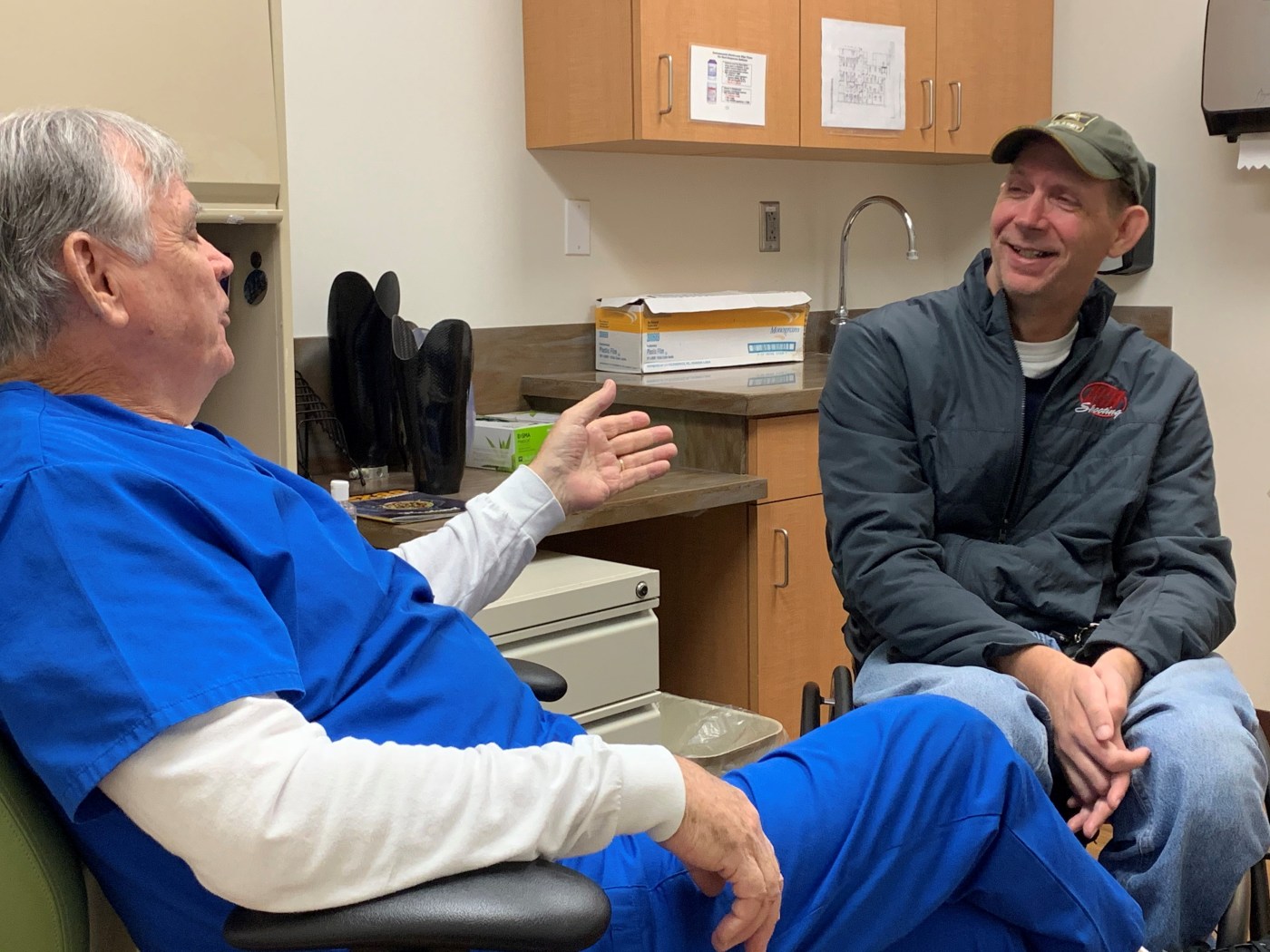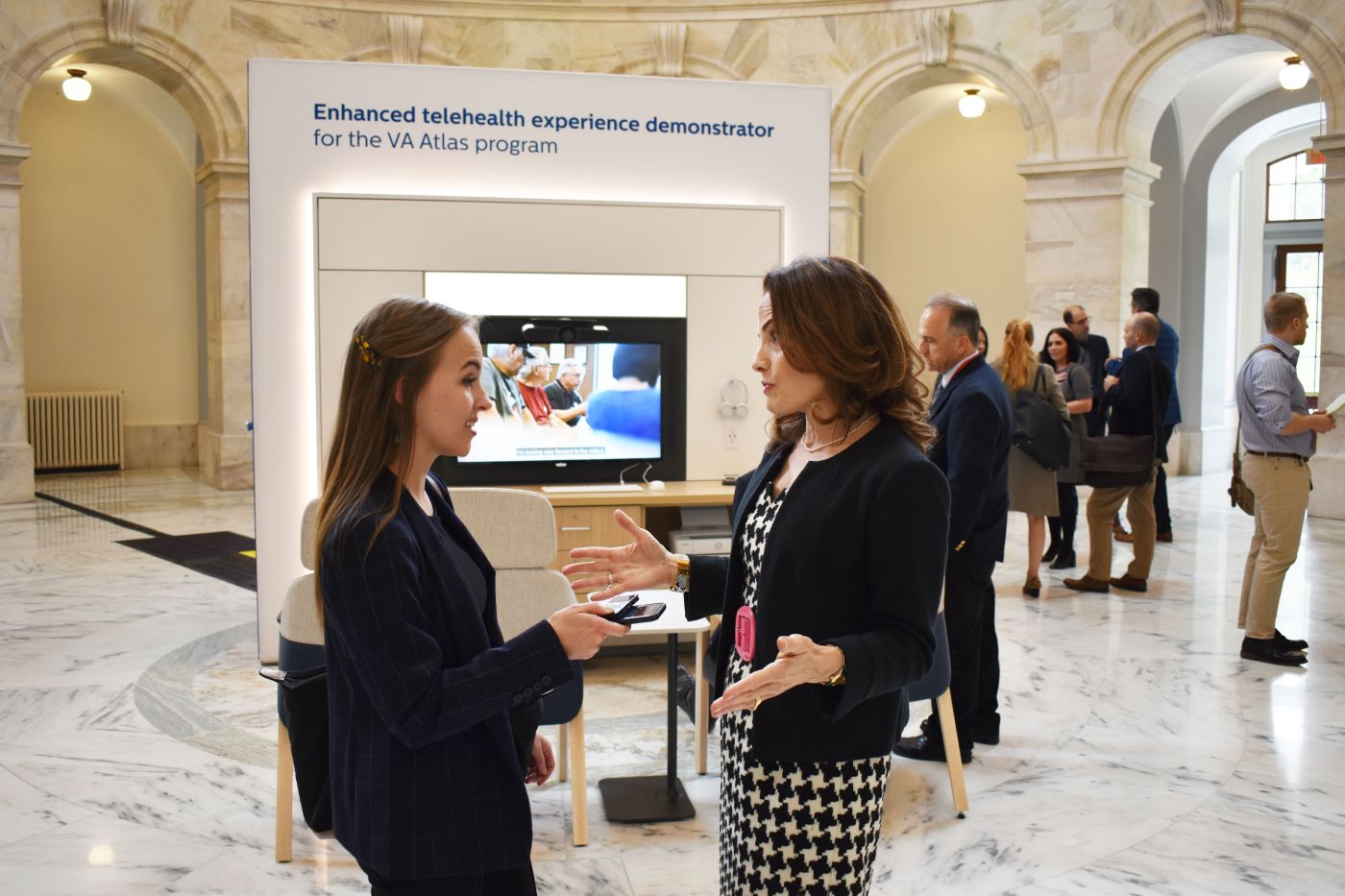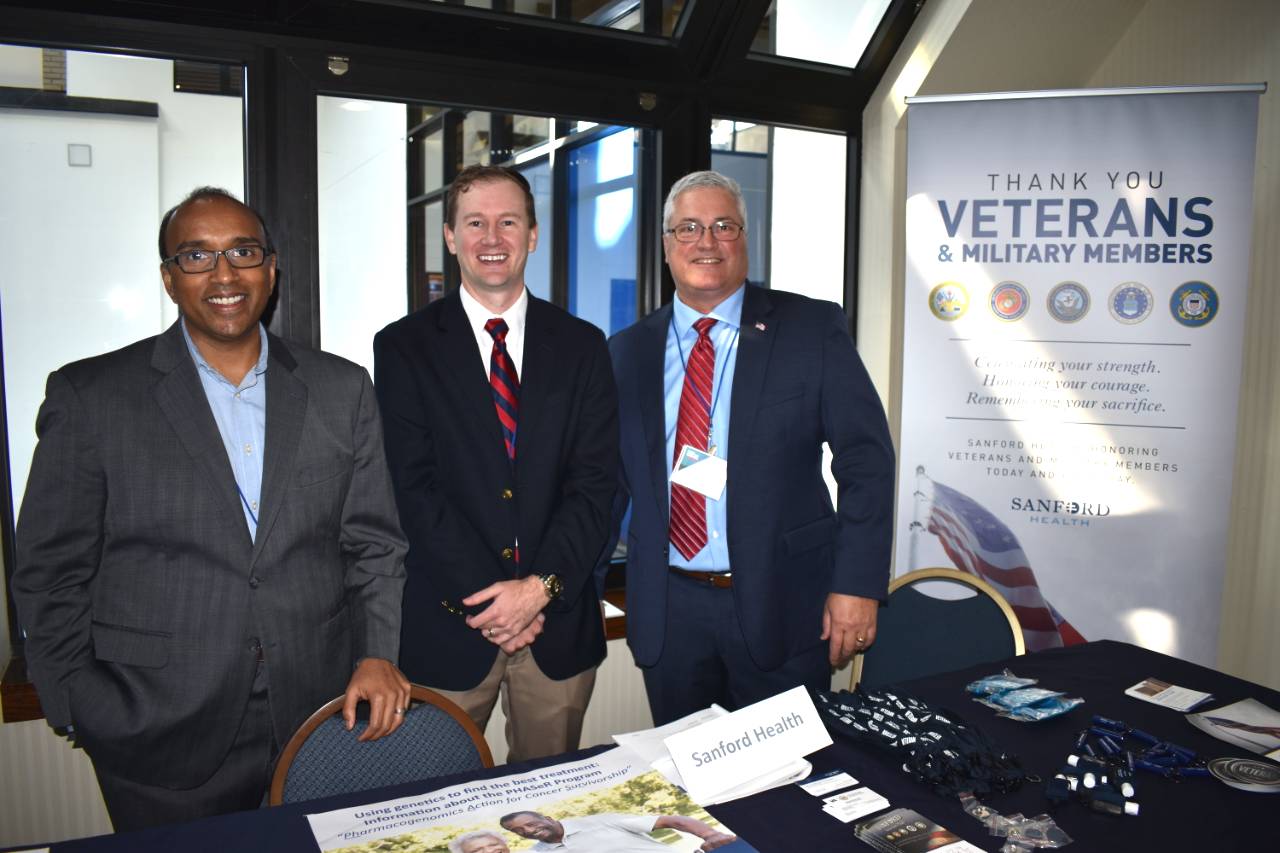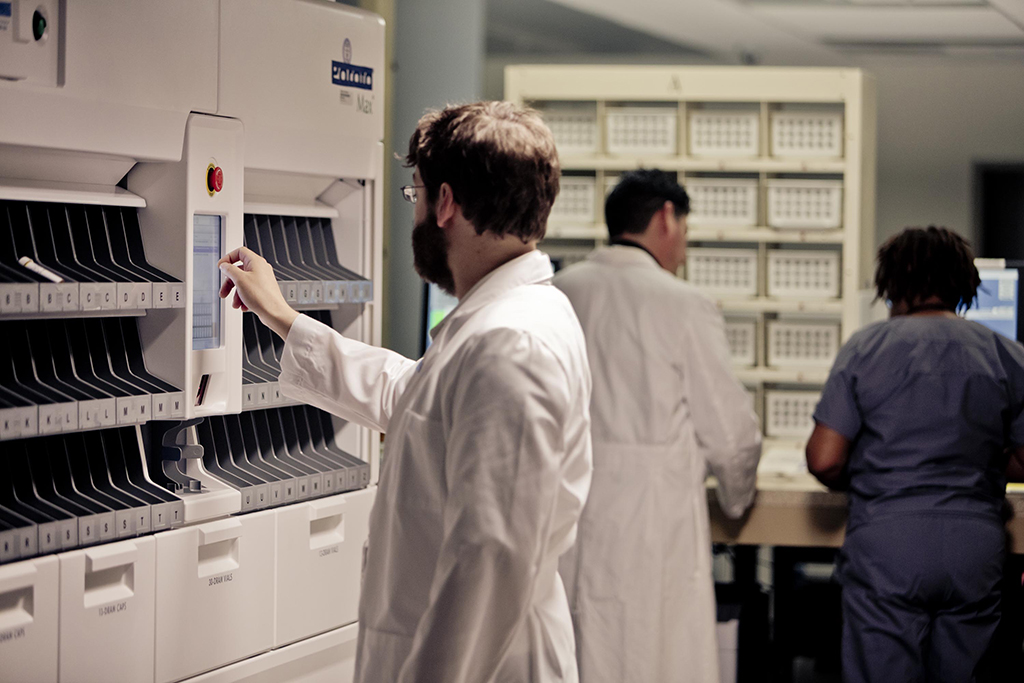During the coronavirus pandemic, Americans have turned to accessing critical health care and financial services online and on their mobile devices. VA’s Office of Information and Technology (OIT) has security tools to protect Veterans’ personal information online.
Two VA programs and its leaders have been named finalists in the 2020 Sammies Awards. The recognition is for health care programs which have transformed Veterans' lives.
Eligible Veterans can now receive free Portal from Facebook video calling devices thanks to a partnership with Facebook and the American Red Cross Military Veteran Caregiver Network. The devices help Veterans connect with their caregivers, families and friends to reduce isolation and improve social connectivity.
Dr. Mike McBride was providing telehealth when telehealth wasn’t cool. The Milwaukee VA psychiatrist, who is also an Iraq and Afghanistan Veteran, was the first provider here to use mental health telehealth in someone’s home about three years ago. McBride was treating a Veteran with severe post-traumatic stress who couldn’t leave the house because of other medical issues.
VA is leveraging telehealth technology to help protect you and your family from the spread of the Coronavirus (COVID-19).
Starting April 17, 2020, your community providers who are in VA’s network and participate in VHIE will be able to securely and seamlessly access your VA electronic health information in order to care for you.
If you’ve read about a new technology, there’s a good chance VA is already using it. We’re living in an era of communications miracles, and telehealth is a tool VA uses to consult remotely with rural patients. We’re even tele-consulting to prepare transitioning Veterans for employment outside the Armed Forces.
Matthew lost part of his left leg while serving in Iraq. VA Puget Sound developed a program to help patients, like Matthew, who have travel challenges and need prosthetic care.
With the help of the Prosthetics Service and 3d printing at the San Antonio VA, Army Veteran David Cromwell has cultivated a passion for sharpshooting.
ATLAS will allow Veterans to be examined at their local VSO post through virtual appointments with medical professionals across the Nation.
This year’s Veterans Health Administration Innovation Experience (iEx)--on October 22-23--showcased the power of partnerships and innovation.This year’s Veterans Health Administration Innovation Experience (iEx)--on October 22-23--showcased the power of partnerships and innovation.
The role of innovation is to make change real, personal, and accessible to Veterans wherever they live or receive care. It’s also a major goal of the October 22 and 23 VHA Innovation Experience (iEx). Participants will see and experience for themselves how innovation is reaching Veterans and changing their lives.

